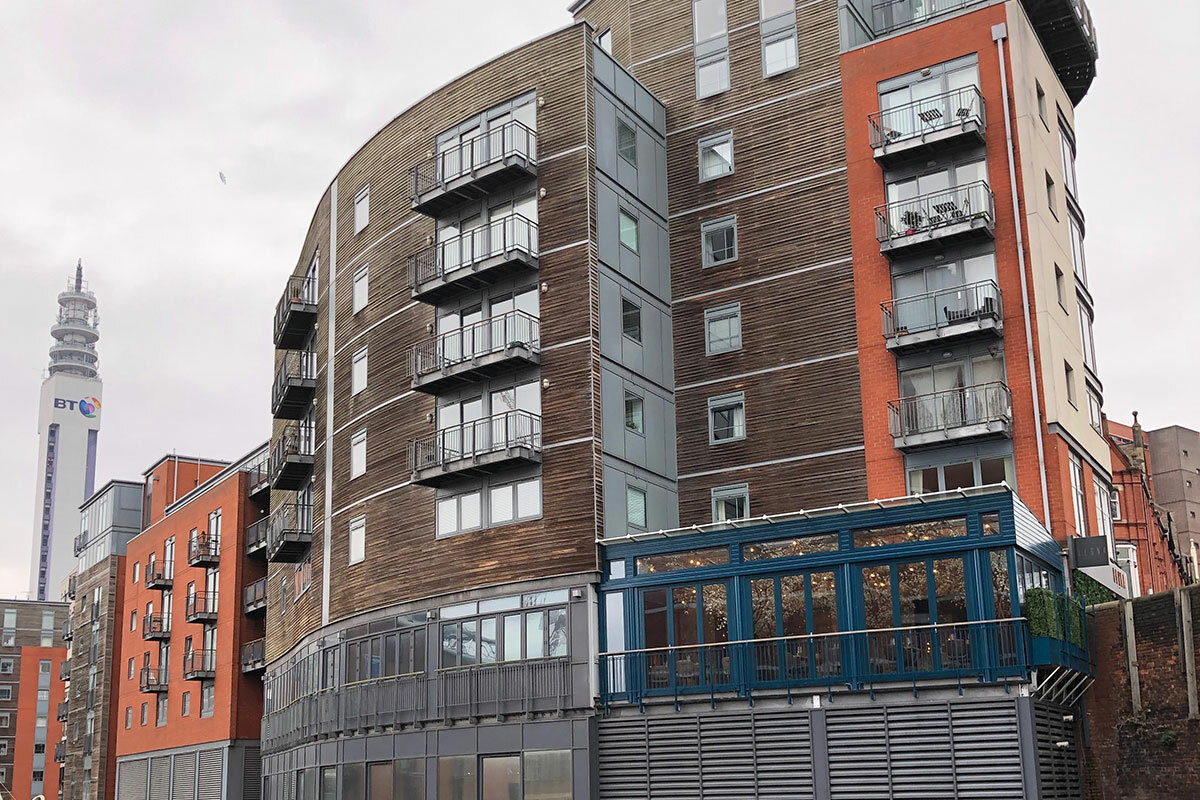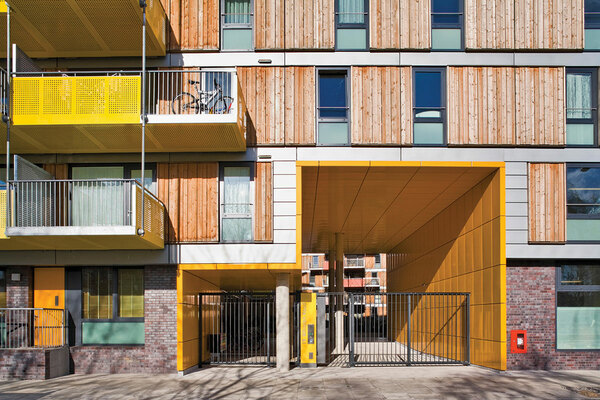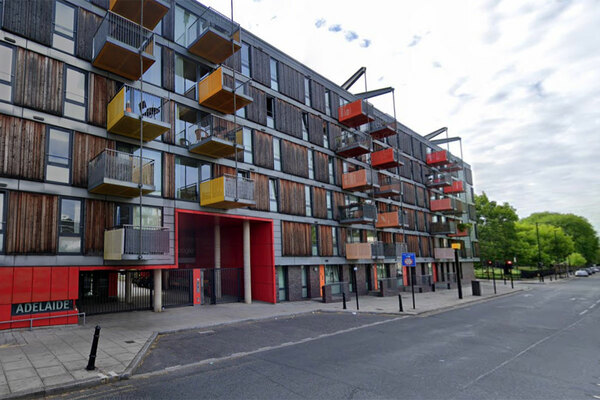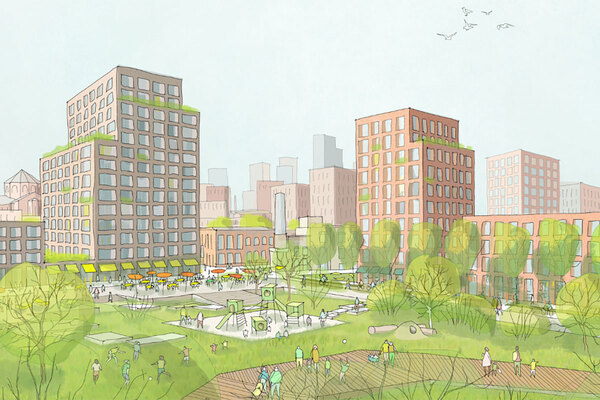Leaseholders of blocks with unsafe cladding hit by insurance premium hikes of almost 400%
Leaseholders in buildings with dangerous cladding are seeing their insurance premiums hiked by almost 400%, compounding the financial crisis caused by huge bills to remove the cladding and keep interim safety measures in place.
Inside Housing has spoken to a resident living in one block in Birmingham that has seen its building insurance premium increase by more than 390% this year, from £39,000 to £191,000, which will have to be split between the tower’s 141 households. Other blocks have seen their insurance cost more than double.
Residents of the Islington Gates development in central Birmingham were made aware that their block had dangerous cladding last year and are now facing a combined bill of £8m – between £35,000 and £100,000 per leaseholder – to cover the costs of removing the cladding and other fire safety measures.
After being unable to renew their £39,000-a-year building insurance cover with Aviva last year because of the fire safety issues, they were forced to look elsewhere.
Unable to secure a policy from a single insurer, they agreed to sign with a consortium of five different insurance companies for a new policy set at £191,000 – a four-fold increase on the last deal.
The consortium is made up of five other insurance companies taking varying percentages of the cover, including Zurich, Aspen, Axa and Allied Insurance. It also includes Aviva, the company that would not renew the previous policy.
To compound the issue, the block’s management company, which is made up of leaseholders living in the block, is unable to secure directors and officers (D&O) insurance cover. D&O insurance is liability cover for company managers to protect them from decisions they have taken. This means that leaseholder directors could be facing huge legal bills if a claim is raised against them.
Brian Simpson, a resident at Islington Gates, said that he and his neighbours have been “left over a barrel” and have no choice but to pay the higher premiums or risk defaulting on mortgages and potentially being kicked out of their properties.
Mr Simpson, who is retired and fears he will have to cash his pension in to pay for the bill, says the issues around cladding have taken over his life and had a major impact on his health.
A spokesperson for Zurich, the company with the highest percentage of cover in the consortium of insurers, said that it had worked hard to find an insurance solution that gave residents certainty while reflecting the significant dangers posed by the building’s extensive and highly combustible cladding.
They added: “We recognise the many difficulties faced by residents living in buildings with unsafe cladding, not least the ongoing risk to life, and repeat our call for the government to help address these issues through urgent and fundamental fire safety reforms.”
Aviva, Aspen and Axa declined to comment. Allied Insurance was contacted by Inside Housing for comment.
The problems faced by Islington Gates residents are also being faced by many people living in a number of other buildings across the country which have similarly high bills.
Inside Housing has also spoken to a leaseholder at the 25-storey Altitude 25 block in Croydon, who has seen their building’s insurance increase from £100,000 to £205,000.
Sam Thompson, a leaseholder at the block, told Inside Housing that the government needs to step in to ensure that there is more competition with the high-rise building insurance market in order to bring costs down.
A spokesperson for the Association of British Insurers said building insurers have not changed their fundamental approach to insuring “high-rise and high-risk buildings”.
They added: "The government has declared it unfit for purpose and it is a hazard for people whose homes are in these blocks.
“The rise in insurance costs for private blocks where cladding has not been removed and replaced is rational given the current risk and the declaration that it is unfit for purpose.”
Along with leaseholders from affected blocks, Inside Housing is running the End Our Cladding Scandal campaign, which calls for a building safety fund to help cover the costs of dangerous cladding.
The leaseholder groups sent an open letter to the chancellor this morning asking him to use next week’s Budget to tackle the growing crisis.
How difficulties in accessing insurance are exacerbating the cladding scandal
The news of the escalating buildings insurance bills come as other parts of the insurance market continue to further fuel the plight of leaseholders around the country.
There are currently thousands of leaseholders in the country unable to sell their homes due to checks on the cladding having not yet been carried out.
This issue has been exacerbated by the fact that many inspectors are currently unable to secure professional indemnity (PI) insurance as providers withdraw from the market or drastically reduce the level of cover available to inspectors if they were to claim.
PI insurance covers construction professionals from negligence claims but has been made increasingly difficult to secure post Grenfell, as insurers run scared from potentially enormous payouts that would result from another big fire.
Inside Housing has seen correspondence between housing associations that allude to the PI problem, making it harder for them to secure inspectors to check the buildings and complete the EWS forms for mortgage providers.
In one email sent to a leaseholder, a property manager at a London association described the situation as at “deadlock” due to inspectors not wanting to accept the liability to sign off buildings, the availability of qualified firms.
Rendall and Rittner, one of the country’s largest managing agents of private blocks, has told Inside Housing that there was a UK-wide problem with inspectors able to obtain necessary PI cover.
It is understood that it had to halt inspection works on blocks last year after PI cover was withdrawn from those investigating its blocks, with the agent struggling to bring together a panel of experts to continue the work due to the PI issues.
Nigel Glenn, the chief executive of the Association of Residential Managing Agents, said the PI crisis has also spread to managing agents, with many struggling to find insurance near the same terms as previous years.
He said that many of its members are unable to secure with premiums and excess of their policies both increasing while some had exclusion causes to cover anything directly or indirectly related to fire safety or combustible cladding.
And that one of its largest members went to a total of 20 different insurers and 18 refused to provide cover.
Commenting on the PI insurance issues, a spokesperson for the Association of British Insurers (ABI) said that competition still existed in the PI market and reinsurance was available but the market reflected the changes in risk post-Grenfell.
They added: "There is a level of uncertainty on insuring the construction industry, who are currently operating in a regulatory environment that has been classed as not fit for purpose, and a general view that there is a lack of competence around all those involved in fire safety of a building.
"The ABI has emphasised the importance of meaningful change through the review of building regulations to provide greater confidence to the market. Regulations on which PI insurers had previously relied upon, but which ultimately had proven to be flawed, are in need of fundamental reform."
Sign up for our weekly Grenfell Inquiry newsletter
Each week we send out a newsletter rounding up the key news from the Grenfell Inquiry, along with the headlines from the week
Already have an account? Click here to manage your newsletters














